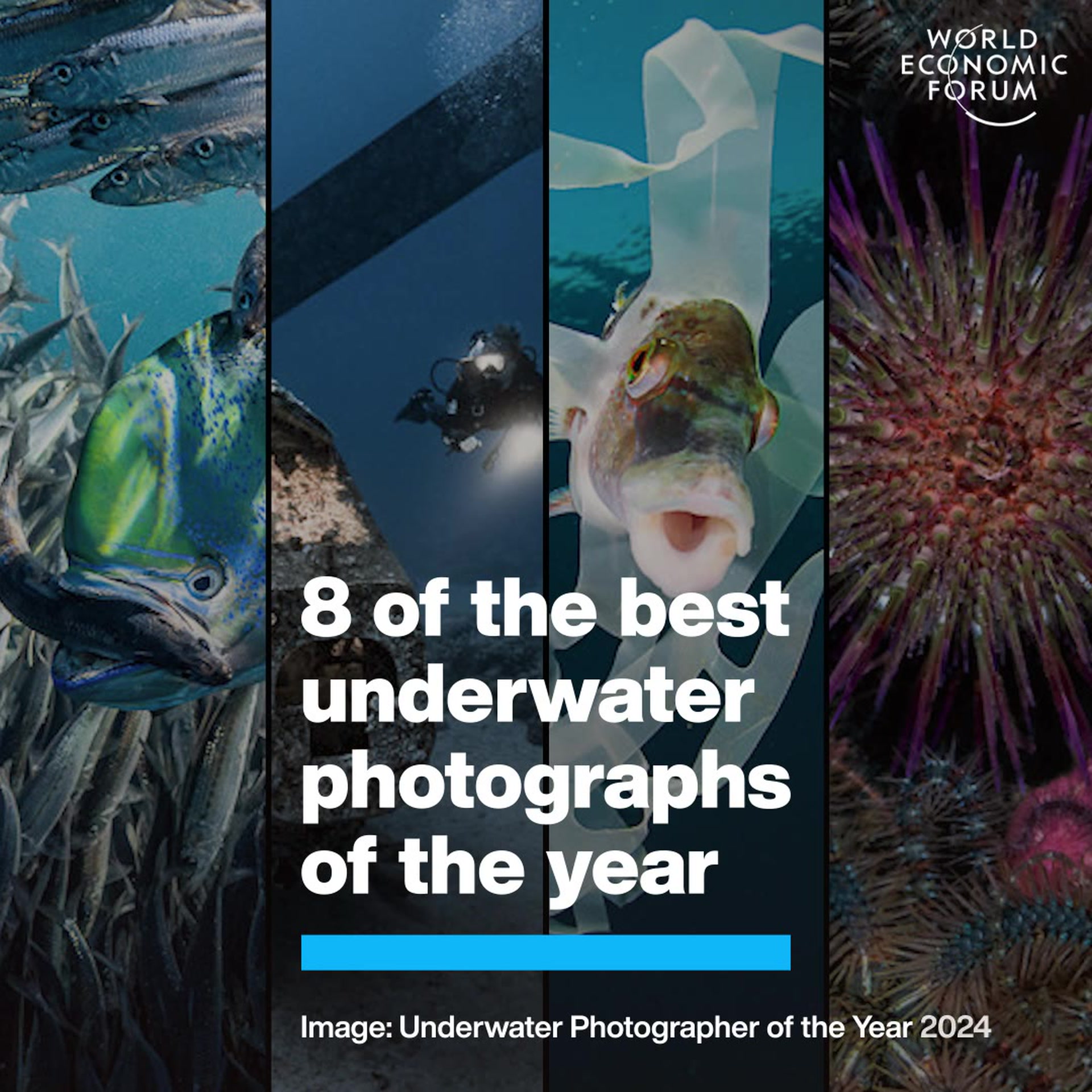Algae sex could save corals from climate change

The ongoing efforts to try to breed corals is to try and make the most stress-resistant colonies possible. Image: Unsplash/ Q.U.I

Get involved with our crowdsourced digital platform to deliver impact at scale
Stay up to date:
Ocean
- A new study shows the algae that are important to corals are able to reproduce through sex.
- This can open a path toward the accelerated evolution of strains that can better protect coral from the effects of climate change.
- The researchers discovered what conditions might promote sex and how they can induce it.
Researchers already knew the importance of algae known as dinoflagellates to the health of coral as the oceans warm, and have now confirmed the tiny creatures not only multiply by splitting in half, but can also reproduce through sex.
Most stony corals cannot survive without their symbionts and these symbionts have the potential to help corals respond to climate change
”That, according to Rice University marine biologist Adrienne Correa and graduate student Lauren Howe-Kerr, opens a path toward breeding strains of dinoflagellate symbionts that better serve their coral partners.
Dinoflagellates not only contribute to the stunning color schemes of corals, but critically, they also help feed their hosts by converting sunlight into food.
“Most stony corals cannot survive without their symbionts,” Howe-Kerr says, “and these symbionts have the potential to help corals respond to climate change. These dinoflagellates have generation times of a couple months, while corals might only reproduce once a year.
“So if we can get the symbionts to adapt to new environmental conditions more quickly, they might be able to help the corals survive high temperatures as well, while we all tackle climate change.”
In their study in Scientific Reports, the researchers wrote the discovery “sets the stage for investigating environmental triggers” of symbiont sexuality “and can accelerate the assisted evolution of a key coral symbiont in order to combat reef degradation.”
To better understand the algae, the researchers reached out to Rosa Figueroa, a researcher at the Spanish Institute of Oceanography who studies the life cycles of dinoflagellates and is lead author of the study.
“We taught her about the coral-algae system and she taught us about sex in other dinoflagellates, and we formed a collaboration to see if we could detect symbiont sex on reefs,” Howe-Kerr says.
“In genomic datasets of coral dinoflagellates, researchers would see all the genes coral symbionts should need to reproduce sexually, but no one had been able to see the actual cells in the process,” says Correa, an assistant professor of biosciences. “That’s what we got this time.”
The discovery follows sampling at coral reefs in Mo’orea, French Polynesia, in July 2019 and then observation of the algae through advanced confocal microscopes that allow for better viewing of three-dimensional structures.
“This is the first proof that these symbionts, when they’re sequestered in coral cells, reproduce sexually, and we’re excited because this opens the door to finding out what conditions might promote sex and how we can induce it,” Howe-Kerr says. “We want to know how we can leverage that knowledge to create more genetic variation.”
“Because the offspring of dividing algae only inherit DNA from their one parent cell, they are, essentially, clones that don’t generally add to the diversity of a colony. But offspring from sex get DNA from two parents, which allows for more rapid genetic adaptation,” Correa says.
Symbiont populations that become more tolerant of environmental stress through evolution would be of direct benefit to coral, which protect coastlines from both storms and their associated runoff.
“These efforts are ongoing to try to breed corals, symbionts, and any other partners to make the most stress-resistant colonies possible,” Correa says. “For coral symbionts, that means growing them under stressful conditions like high temperatures and then propagating the ones that manage to survive.
What's the World Economic Forum doing about the ocean?
“After successive generations we’ll select out anything that can’t tolerate these temperatures,” she says. “And now that we can see there’s sex, we can do lots of other experiments to learn what combination of conditions will make sex happen more often in cells. That will produce symbionts with new combinations of genes, and some of those combinations will hopefully correspond to thermotolerance or other traits we want. Then we can seed babies of the coral species that host that symbiont diversity and use those colonies to restore reefs.”
Support for the research came from the Spanish Ministry of Science and Innovation and the European Community Project, a Lewis and Clark Grant from the American Philosophical Society, a Wagoner Foreign Study Scholarship, the National Science Foundation, and an early-career research fellowship from the Gulf Research Program of the National Academy of Sciences.
Don't miss any update on this topic
Create a free account and access your personalized content collection with our latest publications and analyses.
License and Republishing
World Economic Forum articles may be republished in accordance with the Creative Commons Attribution-NonCommercial-NoDerivatives 4.0 International Public License, and in accordance with our Terms of Use.
The views expressed in this article are those of the author alone and not the World Economic Forum.
Related topics:
The Agenda Weekly
A weekly update of the most important issues driving the global agenda
You can unsubscribe at any time using the link in our emails. For more details, review our privacy policy.
More on OceanSee all
William Austin
April 17, 2024
Mark John Costello
April 8, 2024
Robin Pomeroy and Linda Lacina
March 28, 2024
Meg Jones
March 14, 2024







